The Otago Central Rail Trail is a 152km long scenic cycle route which follows the former Otago Central Branch Railway Line through Central Otago in the South Island of New Zealand. I spent the first four days of 2024 cycling it, booking an Otago Rail Trail package through She Bikes He Bikes.
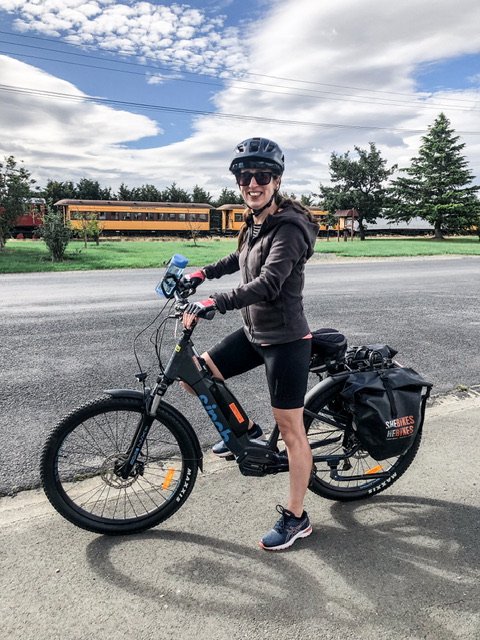
As well as providing my bike, She Bikes He Bikes booked all my accommodation and shuttled my 14kg suitcase between my stops. I went mid-range so my accommodation along the Otago Rail Trail averaged around $80 per night and I often shared a bathroom. There are accommodation options for all budgets, and you could just hire the bike, take only what fits in your pannier bags and book your own accommodation.
My 22 page itinerary felt like an awful lot of instructions but taking it stage by stage proved a winning strategy.
Middlemarch to Clyde
When I booked my Otago Rail Trail package in early July, accommodation was already very full for the start of January. Cycling from Clyde to Middlemarch seems to be the most common route (as it’s generally not into the wind) but taking it in reverse solved my accommodation challenges.
I flew into Dunedin the day before I was due to start cycling and was taken to Middlemarch in a She Bikes He Bikes shuttle. There’s free wifi in the Middlemarch township which worked at the local pub but unfortunately did not stretch to my comfortable cabin at the back of the Middlemarch Holiday Park.
After a wander around admiring the historic buildings and old train station, my New Years Eve was spent at Strath Taieri Hotel where I can recommend both the $6 Sauvignon Blanc special, and the fish burger which came with a huge pile of chips.
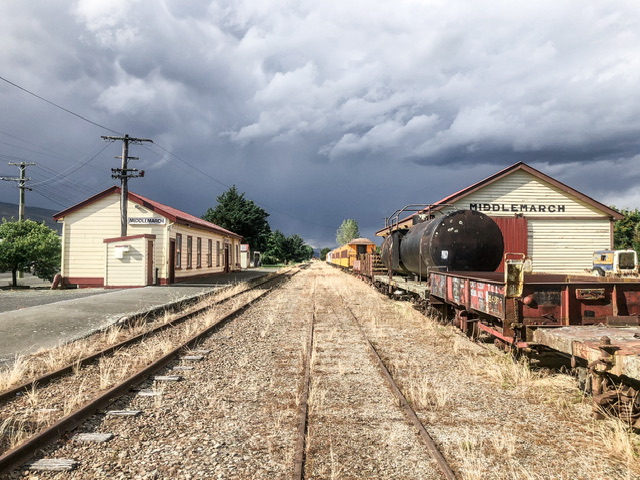
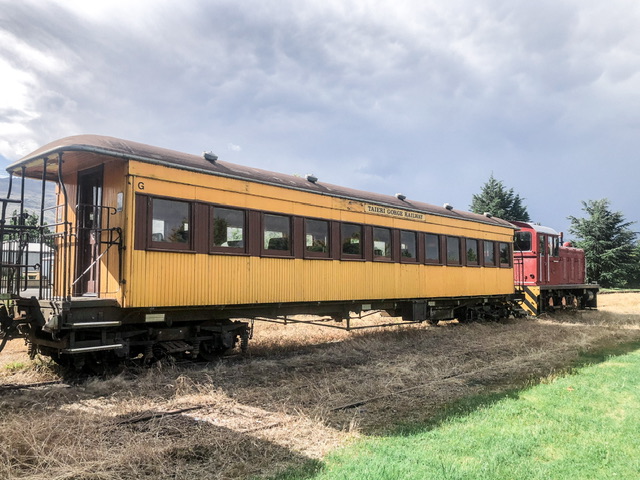
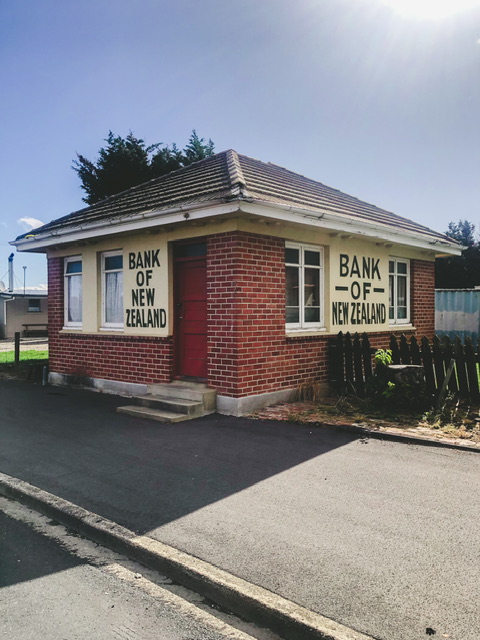
Day 1
I started my first morning riding the Otago Central Rail Trail with a coffee and cheese roll at the Kissing Gate Cafe before heading to She Bikes He Bikes to get set up with my ebike. By 10am I was out on the trail with 52km to ride to Waipiata on my first day on the trail.
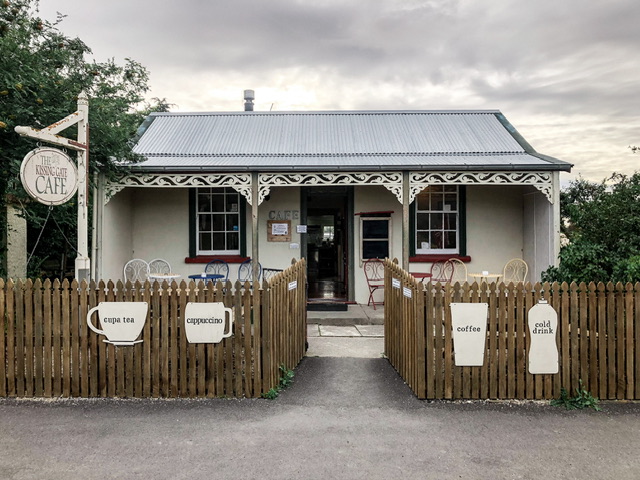
There wasn’t really anywhere to stop on the first day so I took a packed lunch procured in Dunedin the day before with me. Hyde, 27 kilometers into my journey was the first place it would even be possible to refill water bottles.
I stopped to take breaks and read everything I could along the trail, in the old stations, on signage and in the red Ganger sheds which are full of information. The first historic rail station I came across was Ngapuna.
Friends who had completed the Otago Rail Trail in the years before me were able to stamp their Rail Trail Official Passport at each station but apparently the stamps kept getting stolen. Now you can match stickers from the centre page of your passport with each station site in your passport as you go (which I wish had been explained to me but really I should have just read the first page of the passport). Proceeds from the passport sales contribute to the ongoing development and enhancement of the trail.
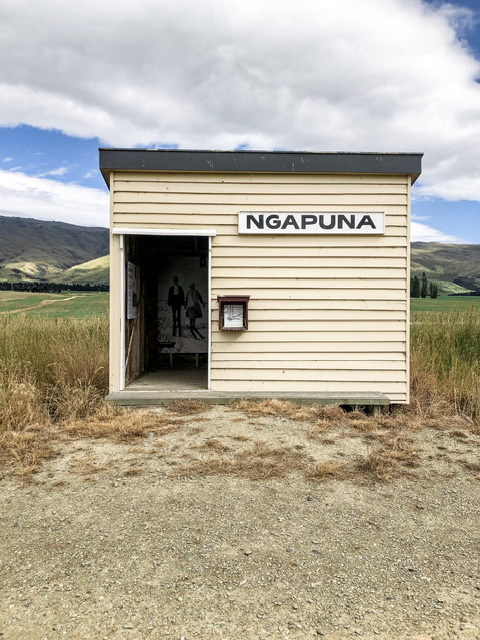
Something else which was not explained, and I had to google was the scale model of our Solar System – every so often I’d come across a random planet sculpture.
Between Rock and Pillar and Hyde is Straw Cutting, the site of the 1943 Clyde Railway Disaster. 21 train passengers were killed and many others injured after a drunk train driver approached a sharp corner at high speed, rolling the engine and derailing all seven carriages. It was mind-blowing cycling around the bend and imagining a train taking it so disastrously fast.
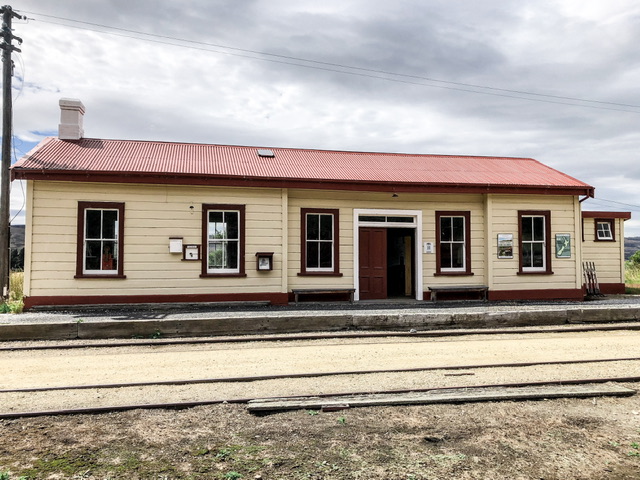
Where the trail meets the main road in Hyde, several kilometers from the historic Hyde railway station, was a busy street corner as groups of riders from both directions sat eating lunch. Shortly afterwards was the first tunnel and a cool bridge – the highlights of my first day. The last 10.5km from Kokonga then felt particularly tough with hot weather, tired legs and a strong headwind.
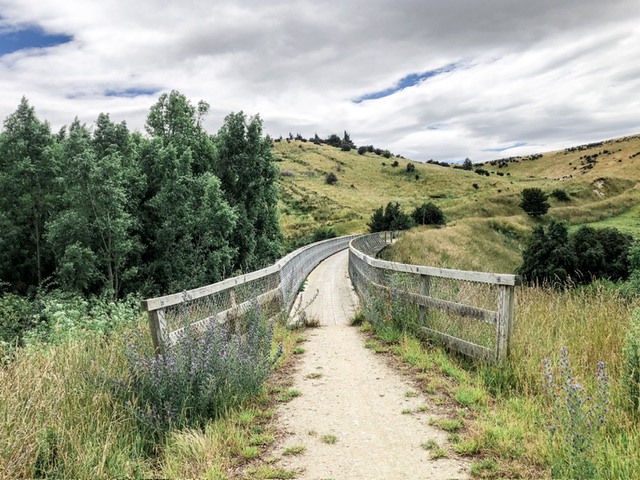
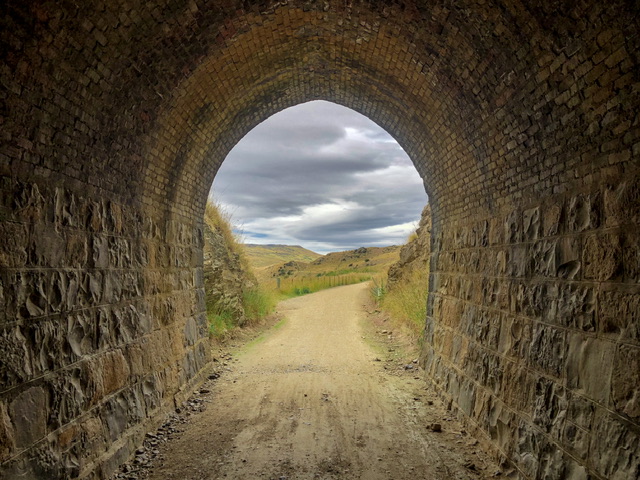
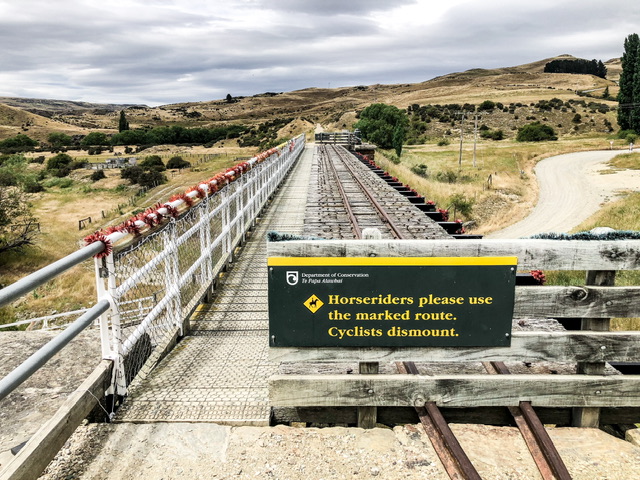
Waipiata
My accommodation for the night in Waipiata was at Behind the Bike Sheds and was super cute with lovely hosts.
The pies at the Waipiata Country Hotel had been recommended to me by a (non-ebike) rider I kept catching up with and then being passed by whenever I stopped between Rock and Pillar and Tiroiti.
I got to the Waipiata Country Hotel early as Debbie from Behind The Bike Sheds told me that while it was a township of only 20 residents the pub was always busy. They had craft beers and a heap of pie options but were short on staff who were old enough to serve alcohol and apparently only have one oven. A group of three who were also from Wellington and had seen me set off from She Bikes He Bikes that morning invited me over to join them for a chat and a game of cards.
Day 2
Ranfurly
I was looking forward to my stop in Ranfurly, as it has more than 40 remaining art deco buildings, although much of the central town was rebuilt following suspicious fires in the 1930’s. There seems to be a certain amount of local pride in the fact it’s big enough to have two “supermarkets”.
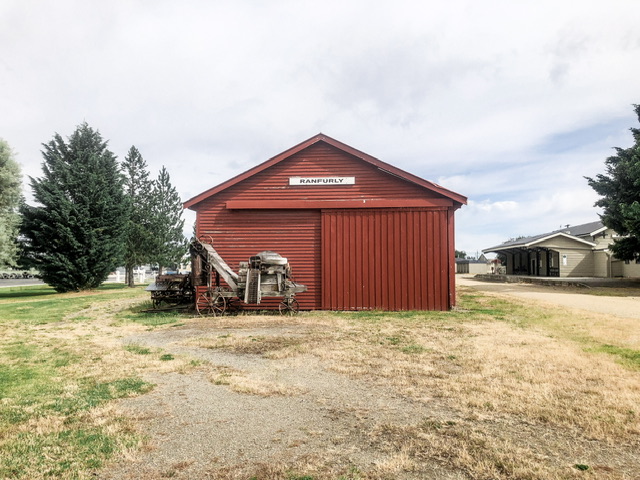
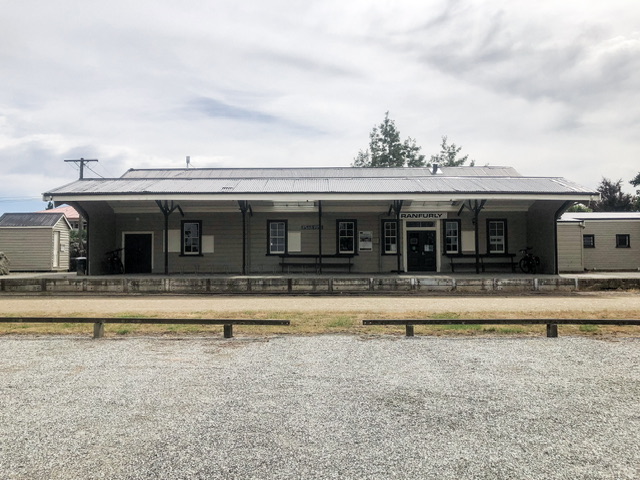
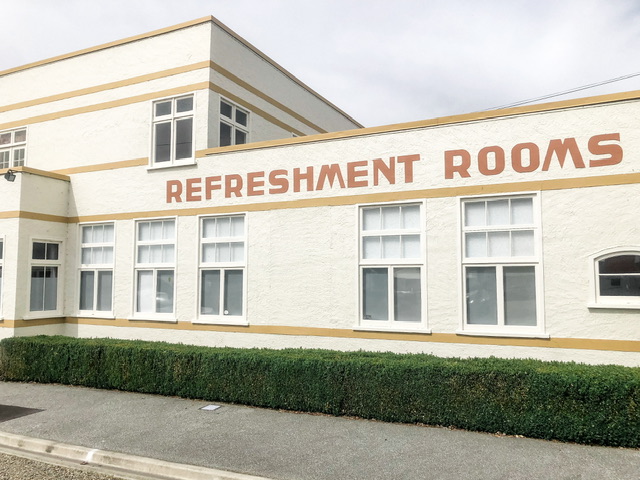
The Centennial Milk Bar was a refreshment stop for people taking the Otago Central Branch Railway but is now an art deco gallery which was closed but I perused the Op Shop next door before pressing onwards.
Not long afterwards I reached the highest point on the trail at 618 metres above sea level and it’s basically downhill in both directions from Wedderburn.
Wedderburn
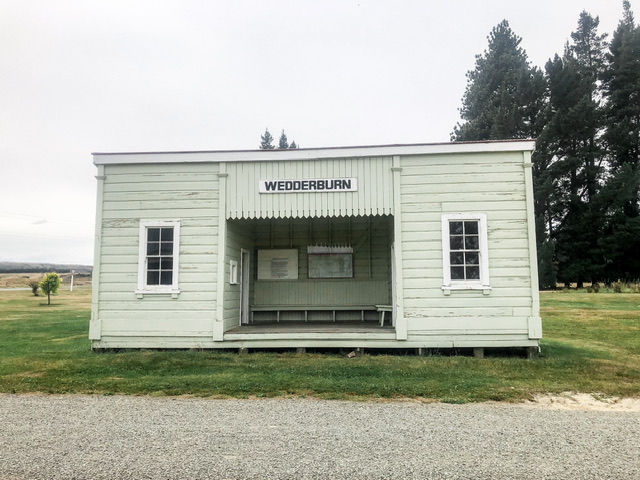
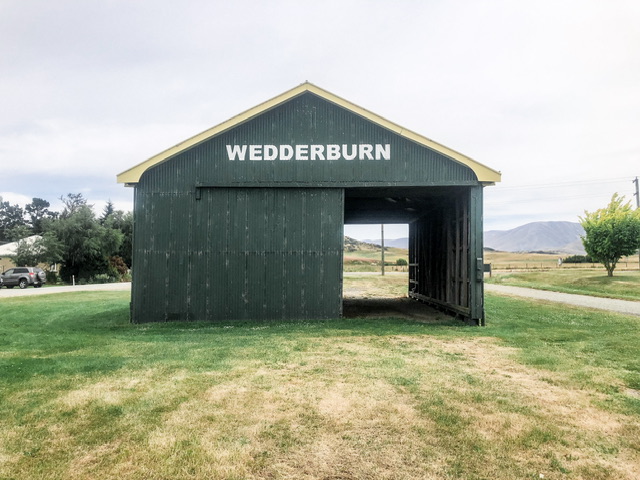
Wedderburn features both a Green Shed and Red Barn. The Red Barn information centre at the Wedderburn Lodge and Cottages was a welcome oasis for my next break, with a flushing toilet, honesty box snacks, somewhere to refill water bottles and a couch as well as local information.
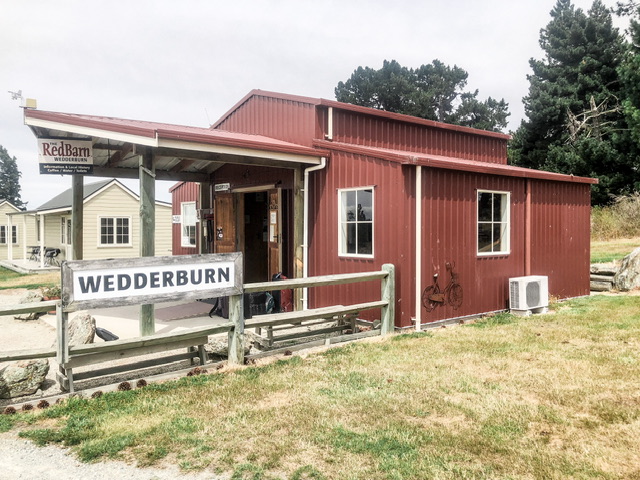
Oturehua
In the Ida Valley, shortly before Oturehua where I was spending the night, I took a 400m side adventure up a road to the Golden Progress quartz mine site.
The remnants of the Golden Progress mine are on private property access is allowed to, on a 20 minute round walk. As well as the poppet head structure you can see an old cottage and other remnants.

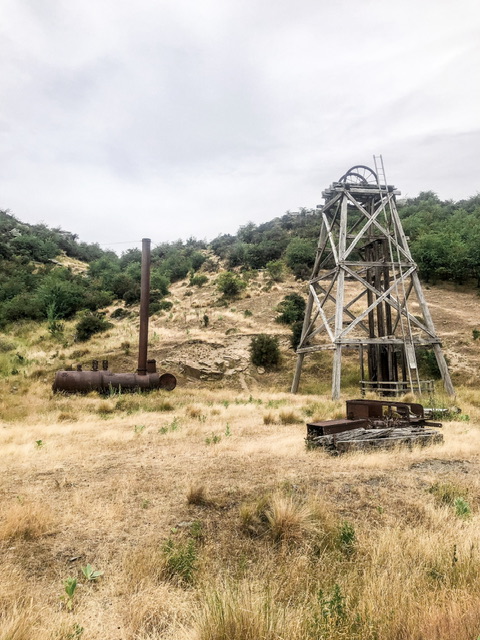
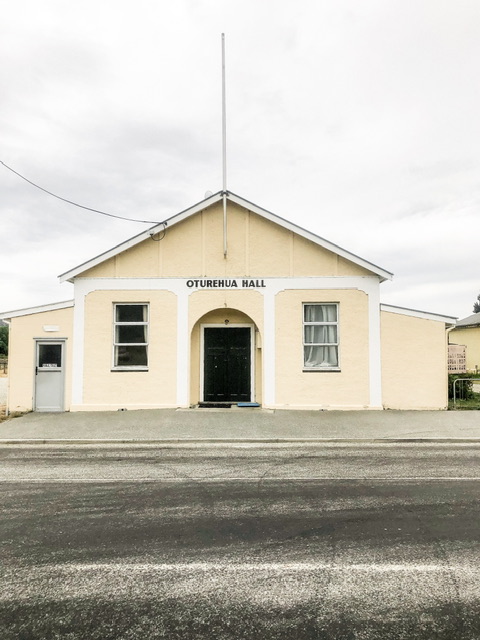
My accommodation on my second night was at the Crows Nest and I had dinner at the Oturehua Tavern where my table was identifiable by a post-it with my name on it. The Oturehua Tavern had a surprisingly fancy menu, several vegetarian options, and cuttings on tables.
Gilchrist General Store is New Zealand’s oldest operating general store and is like stepping into the past.
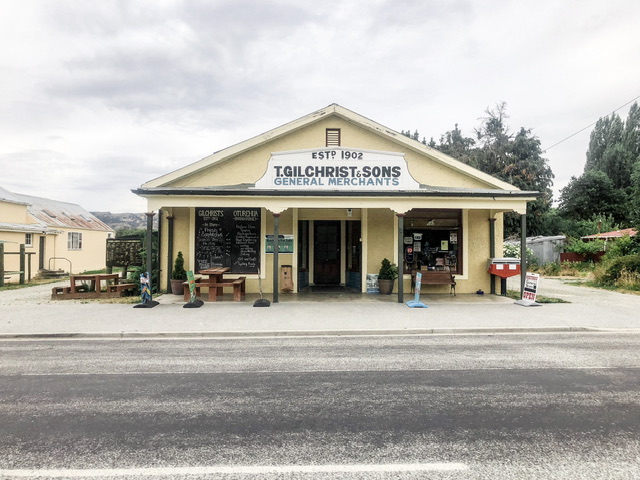
Day 3
My third day on the Otago Central Rail Trail was by far the most scenic and featured two long tunnels you need to walk your bike through, and the high Poolburn Viaduct. If you were to only do part of the rail trail I’d recommend making it between Oturehua and Lauder.
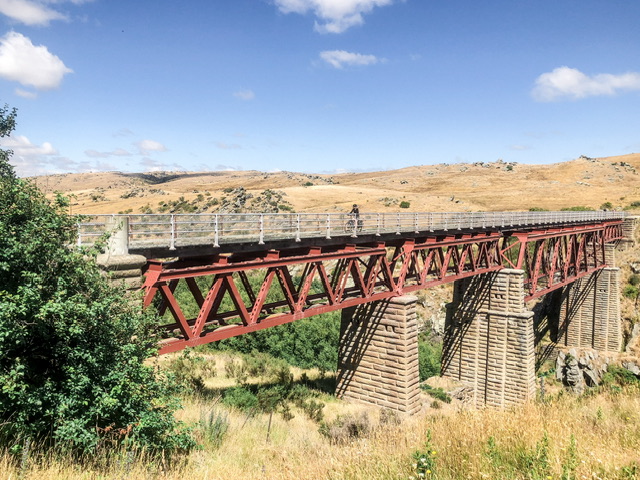
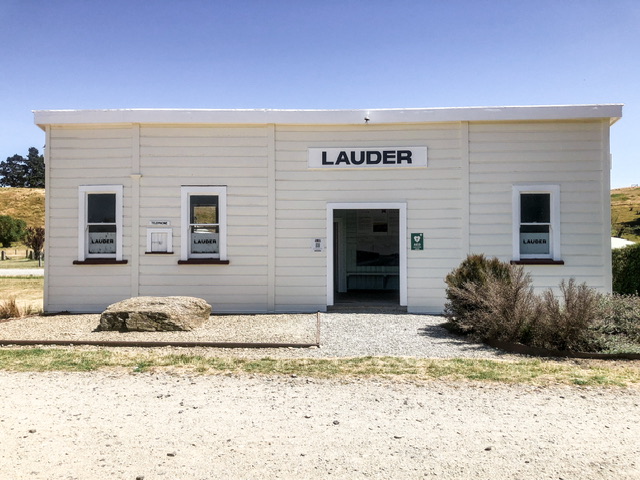
Omakau
The Omakau Hotel closed suddenly a few weeks before I was due to arrive and I was grateful the Omakau Domain Camping Ground could fit me into a cabin.
A 6km side loop to historic Ophir from Omakau is recommended. Needing to book somewhere for dinner after arriving I called Pitches Store in Ophir and Colleen kindly agreed to come and collect me ahead of my booking. This meant I could wander around Ophir while my meal was being prepared and the crowds had left for the day.


Day 4
Chatto Creek
My first stop on my final day on the Otago Central Rail Trail was Chatto Creek Tavern for a coffee and to see New Zealand’s oldest working post office – a tiny shed where you can still post a letter which will be stamped with the local postmark.
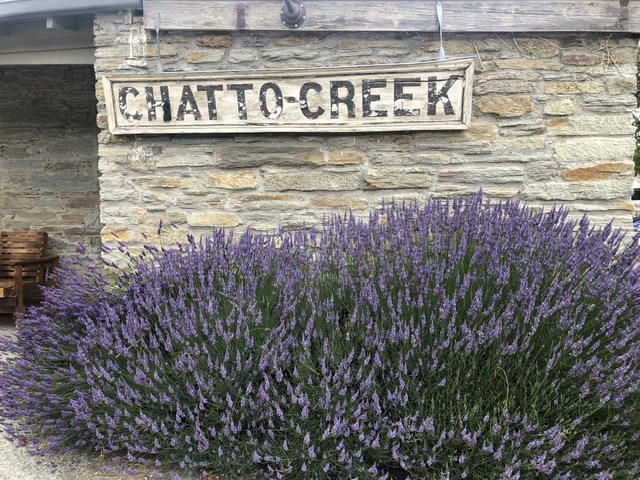
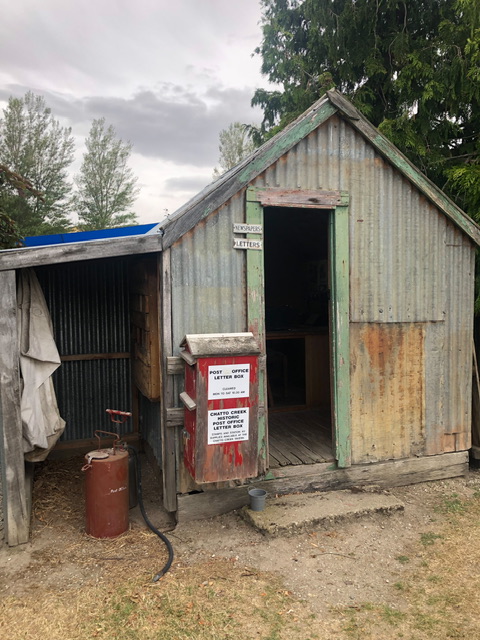
Galloway with it’s cute blue station was a personal favourite former station.
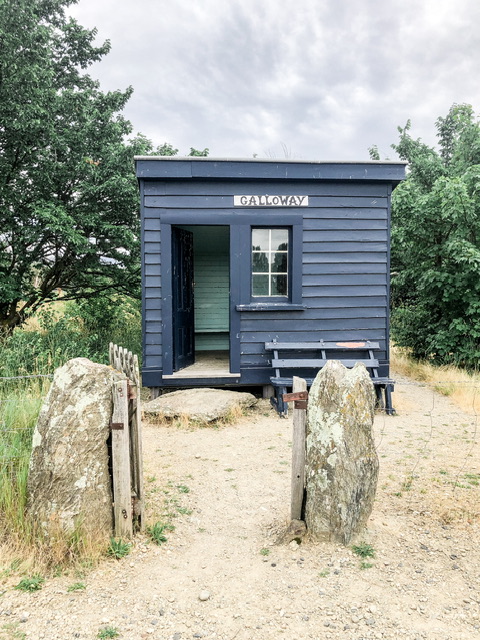
From Alexandra you can choose to ride the Alexandra to Clyde River Track or stay on the Rail Trail. I found Alexandra, by far the largest town on the Otago Central Rail Trail to be overwhelming after four days of tiny towns so after a quick circuit I pressed on on the Rail Trail looking for a winery to stop at. Hinton Estate had a sign up saying they were closed for the season, so I was excited to stumble upon Immigrants Vinyard’s who sell under the Ruru label a little further on.
With less than 7km to go, beautiful views and a passionate host it was the perfect final stop and I added a bottle of their sparkling wine to my pannier bag.
Clyde
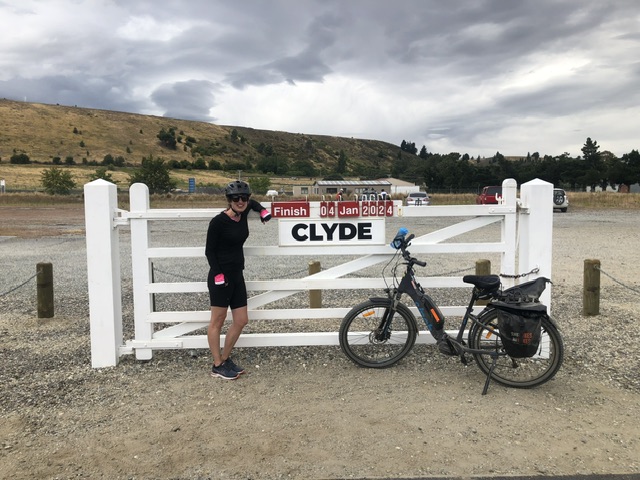
I took the classic finishing photo and then returned my bike to She Bikes He Bikes at the historic Clyde railway station before walking to my accommodation at the Hartley Arms.
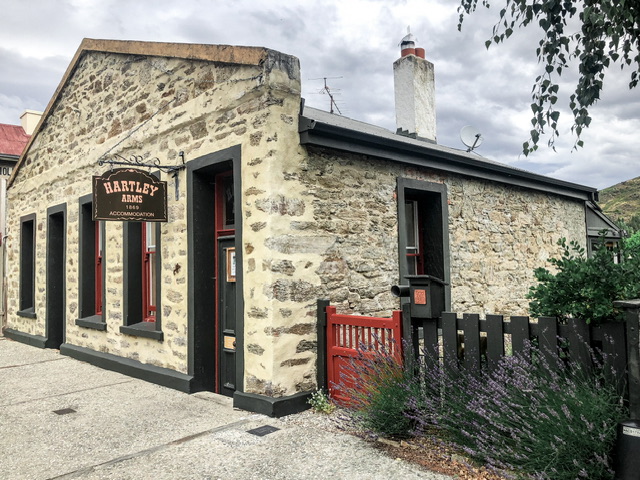
Many of Clyde’s original buildings are still standing including the heritage-listed Benjamin Naylor’s store building which has evolved from a shop, smokehouse and stables to house Olivers Restaurant and Bar which I’d definitely recommend eating at.
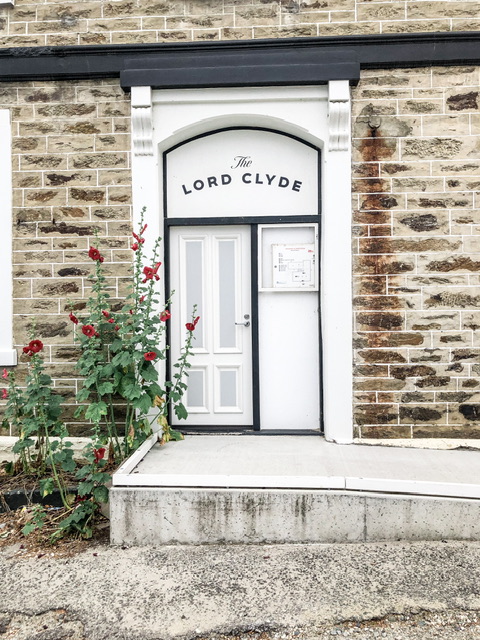
I highly recommend doing the Otago Central Rail Trail – it has stunning landscape and a gradient which makes it possible for most people (especially if you choose an e-bike as I did!). While I took the trip alone everyone was very friendly and groups stopping in the same places often stopped to talk to me. The limited accommodation in the lovely small towns along the way also means it doesn’t get too busy and it’s possible to not see another party for hours at a time.
